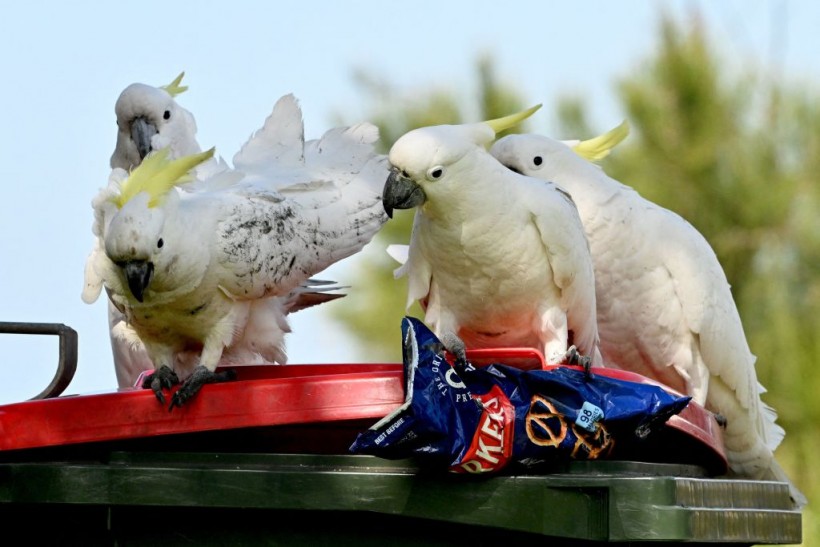Not only do humans occasionally enjoy wet snacks, but scientists have also found that some cockatoos soak their food before consuming it.
The team claims that after observing captive Goffin's cockatoos dipping their food at a midday meal in a manner akin to how some people dip biscuits in tea, they made the decision to investigate further.
Food Dunking Behavior
In a study published in the journal Biology Letters, the researchers kept track of which birds dunked, what they did, how long they did it for, and if they later ate it throughout the course of 12 days.
Seventeen of the eighteen cockatoos were discovered to have dipped in at least one food item, with rusks being the most popular.
It was revealed by two of the most active dunkers that rusk was preferred when eaten moist. They occasionally dipped dried banana chips and dried coconut chips in water, but they generally preferred them dry.
"The behaviour seemed to be mainly targeted at rusk, a dry and hard food type that easily absorbs water and adopts a soggy texture," the team write.
Based on the team's own rusk-dunking experiments, the researchers discovered that the seven cockatoos showed significant diversity in how long they left their pieces of rusk in the water, though some left them long enough for the core to become soft.
The scientists conclude that while it is doubtful the birds were submerging to obtain fluids, the absence of live prey rules out the idea that they were attempting to drown their food.
Consequently, the research surmises that the birds most likely soaked the rusks by dipping them, a tactic that could enhance their texture.
Read Also: Cockatoos in Australia are Learning How to Bin Dive For Food From Each Other
Not Observed Before
The behavior, according to the researchers, shows the birds' inventiveness in the context of food preparation and calls for impulse control and delayed pleasure.
This food-dunking behavior, which has also been seen in grackles and crows, has not before been recorded in parrots.
And for the lab, which usually depends on carefully designed studies to put the cockatoos' well-known problem-solving abilities to the test, it was a fortunate discovery.
It surprised Prof. Simon Reader of McGill University in Montreal, who worked on dunking by wild Carib grackle birds, that the behavior had not before been scientifically recorded in parrots.
"We found that dunking was very rare in the wild in Carib grackles, but it was less innovative than we thought - virtually all birds could do it if you placed them in perfect conditions, with dry food, water, and away from the risk of the food being stolen," he said.
The scientists are unsure if each bird separately invented the dipping technique or if it picked it up from observing its fellows. However, they want to closely monitor the cockatoos over lunch to see whether any other birds pick up the habit.
For scientists who are more used to creating their own obstacles for the birds, it's an unexpected new field of study.
Related Article: Goffin's Cockatoos Craft Cutlery Tools to Extract Seed from Sea Mangoes
© 2024 NatureWorldNews.com All rights reserved. Do not reproduce without permission.





![Roundworms with Short Memories 'Stop Forgetting' When Frozen or Given Lithium [Study]](https://1471793142.rsc.cdn77.org/data/thumbs/full/70295/280/157/50/40/roundworms-with-short-memories-stop-forgetting-when-frozen-or-given-lithium-study.jpg)
